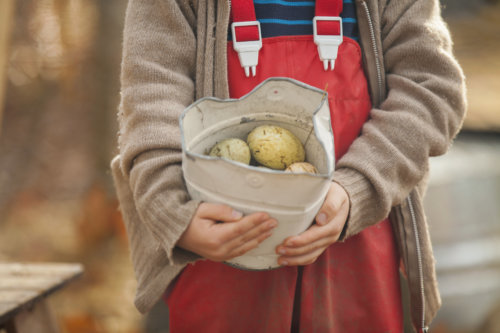
How to Help School Gardens
While education through gardening is not a new topic, its practice is becoming more and more widespread, particularly as its benefits are increasingly documented. Alice Waters has long been a proponent of the method, and the Edible Schoolyard has done much to carry the movement forward, including offering trainings to instructors in the ways of edible education. In recent years, it seems as though all the collective efforts have begun to find quantifiable success.
In this vein, in a recent article for The Washington Post, gardening columnist Adrian Higgis opens his piece by pointing out that half the schools in Washington D.C. have gardens– a heartening and encouraging statistic. Higgis goes on to examine, broadly, what structures have been most effective in ensuring their success (too many have experienced the joy of setting up a school garden, only to see it wither without appropriate attention and support). Generally speaking, the importance and place of garden-based education is no longer the battle– instead, it is matter of ensuring those gardens remain active and well tended. Towards this goal, Higgis points out that success is contingent on getting the staff (not just the kids) excited. As Higgis writes:
“What is becoming clear is that in schools with gardens, the students do better. Many studies are bearing this out. In a newly published University of Maryland study of D.C. school gardens, researchers tracked significant differences in fifth-grade test results between students with gardens and those without. In reading, for example, 61 percent of students in garden schools tested as proficient or advanced, compared with 38 percent in schools without gardens. For math, the difference was 56 percent compared with 36 percent, and for science, 47 percent against 21 percent.
The lesson, perhaps, is that school gardens are a boon to learning, that the movement is now mainstream but not universal, and that they need a web of support within schools and the community to flourish. But gardens are ephemeral and will decline quickly if neglected. It would be a great loss if that were to happen.”
Read the full article on The Washington Post.


































